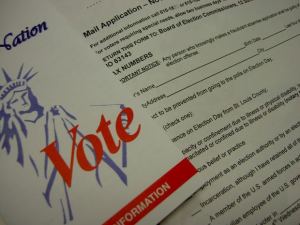
By Cole Tipton
SummitBridge National v. Faison
In this bankruptcy action, SummitBridge National (“National”) appeals the district court’s holding that it is barred from claiming attorney’s fees incurred after a bankruptcy petition was filed. The contract between National and Ollie Faison (“Faison”) stated that Faison would pay “all costs of collection, including but not limited to reasonable attorneys’ fees.” The Fourth Circuit reversed the district court’s holding and stated that the Bankruptcy Code does not preclude contractual claims to attorney’s fees that were guaranteed by a pre-bankruptcy contract. The determination of the district court was reversed and remanded for further proceedings.
In this criminal action, Samual Pratt (“Pratt”) appeals his conviction of various counts of sex trafficking and child pornography due to evidentiary errors. Pratt contends the district court should have suppressed evidence from his cellphone and should not have admitted certain hearsay statements. First, the Fourth Circuit held that it was reversible error to admit evidence from Pratt’s cellphone because the phone was seized without consent and the government waited thirty-one days before obtaining a search warrant. The Court stated that such a delay was unreasonable. Second, the Fourth Circuit held that an unavailable witness’s hearsay statements were admissible because Pratt had procured the witness’s unavailability through phone calls and threats. Accordingly, the Fourth Circuit vacated Pratt’s convictions on the two counts prejudiced by the cell phone evidence, vacated his sentence, and remanded.
Parker v. Reema Consulting Services, Inc
In this civil action, Evangeline Parker (“Parker”) appeals the district court’s dismissal of her complaint against her employer, Reema Consulting Services, Inc. (“Reema”). The central issue of the appeal was whether a false rumor circulated by Reema that Parker slept with her boss for a raise could give rise to liability under Title VII for discrimination “because of sex.” The Fourth Circuit held that because the complaint alleged Reema spread the rumor and acted on it by penalizing the employee, a cognizable claim for discrimination “because of sex” was alleged. The district court’s dismissal was reversed.
US Dep’t of Labor v. Fire & Safety Investigation
In this civil action, Fire & Safety Investigation Consulting Services, LLC (“Fire & Safety”) appealed the district court’s determination that they violated the Fair Labor Standards Act (“FLSA”) for failing to pay overtime compensation. Fire & Safety uses an alternative work schedule for its employees in which an employee works 12 hours per day for 14 days and then receives 14 days off. Because employees under this plan will work 88 hours in one work week, Fire & Safety pays its employees a blended rate for all 88 hours that is supposed to account for the 48 hours of overtime worked, rather than paying 40 hours of standard pay plus 48 hours of overtime. The Fourth Circuit held that this blended rate fails to observe the formalities required by the FLSA which requires all overtime hours be recorded and paid at one and one-half times the standard rate of pay for all hours worked over 40. Accordingly, the Fourth Circuit affirmed the district court’s judgment, including over $1.5 million in back wages and liquidated damages.
Trana Discovery, Inc. v. S. Research Inst.
In this civil action, Trana Discovery, Inc. (“Trana”) brought a fraud and negligent misrepresentation action against Southern Research Institute (“Southern”). Trana alleged that Southern had provided false data in research reports of a new HIV medication it was researching. The district court granted summary judgment for Southern on both claims. The Fourth Circuit upheld the grant of summary judgement, stating that there was no genuine dispute of material fact due to an insufficiency of evidence regarding damages and the standard of care Southern was exacted to. Accordingly, summary judgement was affirmed.
Jesus Christ is the Answer v. Baltimore County, Maryland
In this civil action, Jesus Christ is the Answer Church (“Church”) brought an action alleging violation of the First Amendment’s Free Exercise Clause, the Fourteenth Amendment’s Equal Protection Clause, the Maryland Declaration of Rights, and the Religious Land Use and Institutionalized Person Act. Church alleged that Baltimore County, Maryland (“Baltimore”) had infringed upon their State and Federal rights by denying their modified petition for zoning variances to establish a church. Several neighbors, who had expressed open hostility towards Church, opposed the petition. After the petition was denied, Church filed an action in district court which was dismissed for failure to state a claim. On appeal, the Fourth Circuit reversed and remanded because Church’s complaint contained facts sufficient to state a claim that was “plausible on its face.” The Fourth Circuit held that the neighbors apparent religious bias towards Church was sufficient to plead a plausible Constitutional claim and violation of the Religious Land Use Act.
Curtis v. Propel Property Tax Funding
In this civil action, Garry Curtis (“Curtis”) brought a suit on behalf of himself and similarly situated individuals against Propel Property Tax Funding (“Propel”), alleging violations of the Truth in Lending Act, the Electronic Funds Transfer Act, and the Virginia Consumer Protection Act. Propel was engaged in the practice of lending to third parties to finance payment of local taxes. The district court denied Propel’s motion to dismiss and certified two interlocutory questions. Propel appealed, asserting that Curtis did not have standing and that he failed to state a claim for relief. The Fourth Circuit upheld the district court’s ruling, finding that: 1) Curtis had standing because he was personally subject to the harms these consumer protection statutes were designed to protect against; and 2) Curtis had sufficiently pled violations of the lending acts because Propel was conducting consumer credit transactions.
In this civil action, Blake Charboneau (“Charboneau”) challenges the determination that he is a “sexually dangerous person” under the civil commitment provisions of the Adam Walsh Child Protection and Safety Act of 2006. The district court held that Charboneau was a “sexually dangerous person” within the meaning of the act and committed him to the custody of the Attorney General. On appeal, Charboneau raised two issues: 1) whether he must be diagnosed with a paraphilic disorder to be committed under the act; and 2) if the record supported the district court’s findings. The Fourth Circuit affirmed the district court’s judgment, holding that an actual diagnosis was not necessary under the act and the record was sufficient under a clear error standard of review.
In this criminal action, Willie Johnson (“Johnson”) appealed a district court’s order to resentence him for bank robbery under the sentencing recommendation in his original plea agreement. Johnson argued that the government’s original agreement not to seek a mandatory life sentence under the federal three-strikes law was not beneficial because his prior state crimes should not be counted for federal three-strikes treatment. The Fourth Circuit held that state crimes are encompassed by the three-strikes program and the district court’s decision to honor the original sentencing recommendation was affirmed.
Mountain Valley Pipeline, LLC v. 6.56 Acres of Land
In this civil action, owners of 6.56 acres of land appealed a district court judgement granted Mountain Valley Pipeline, LLC (“Pipeline”) a preliminary injunction for access and possession of property it was acquiring through eminent domain. The Fourth Circuit reviewed the district court’s application of the test set forth in Winter v. Natural Resources Defense Council, Inc., 555 U.S. 7, 20 (2008) for preliminary injunctions. In doing so, the Court found that Pipeline had established it was likely to succeed on the merits, would suffer irreparable harm, the balance of equities was in its favor, and that an injunction served the public interest. Accordingly, the district court was affirmed.
Booking.com B.V. v. US Patent & Trademark
In this civil action, Booking.com and the U.S. Patent and Trademark Office (“USPTO”) appeal the district court’s grant of summary judgment protecting the trademark BOOKING.COM. Booking.com appeals the district court’s grant of attorney’s fees to the USPTO, and the USPTO appeals the court’s decision that BOOKING.COM is protectable. The Fourth Circuit held that BOOKING.COM is not generic and can be registered as a descriptive mark with secondary meaning. Moreover, the Court upheld the grant of USPTO’s expenses because the Lanham Act requires a party to pay “all the expenses of the proceeding” when a USPTO decision is appealed to the district court. Thus, the district court’s judgment was affirmed.
In this criminal action, James Eric Jones (“Jones”) appeals the district court’s denial of a motion to vacate, set aside, or correct his sentence. Jones was originally sentenced under the Armed Career Criminal Act (“ACCA”) which requires a mandatory fifteen-year minimum sentence for defendants with at least three prior violent felony convictions. However, Jones claims that he does not qualify for sentencing under the act because his South Carolina conviction for assaulting, beating, or wounding a police officer is not a violent conviction as defined by the ACCA. The Fourth Circuit held that assaulting, beating, or wounding a police officer does not qualify under the ACCA because it includes conduct that does not involve violent physical force. Therefore, the district court’s judgment was vacated and remanded.

